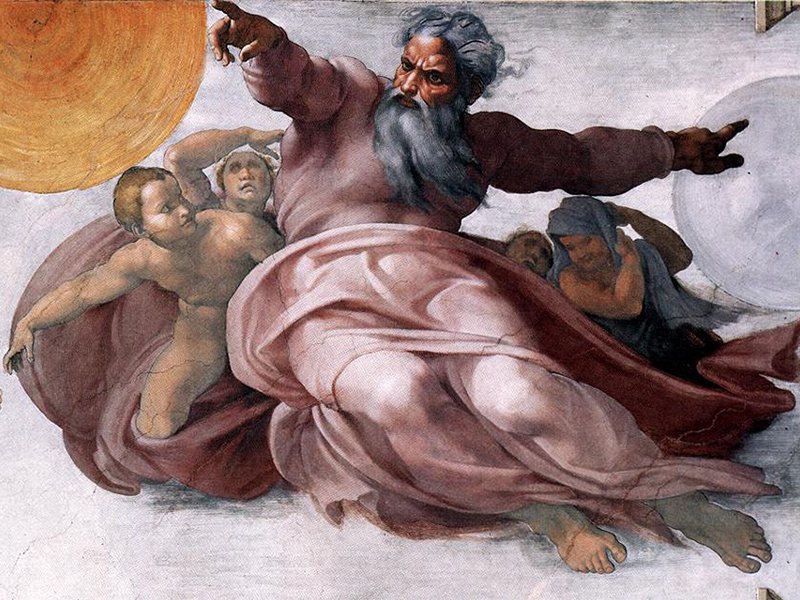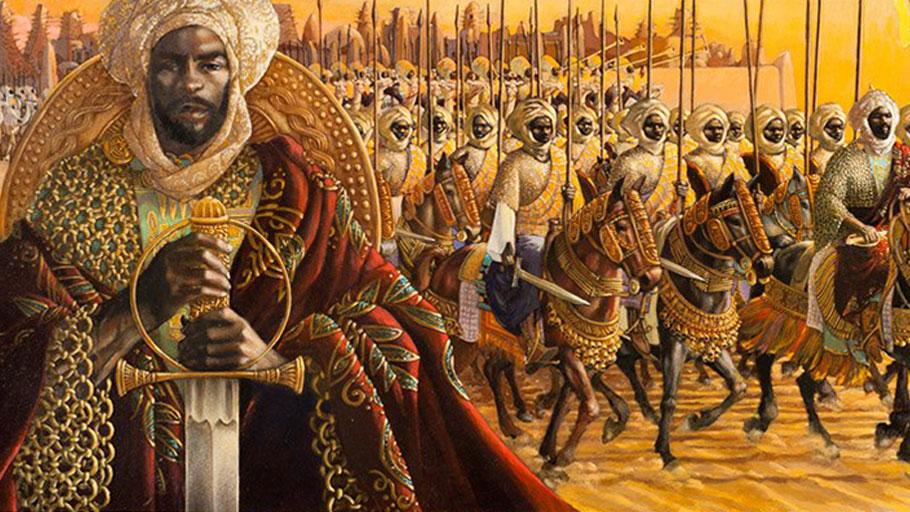5fish
Well-Known Member
- Joined
- Jul 28, 2019
- Messages
- 10,758
- Reaction score
- 4,577
What do all religions have in common? They are created by man from the first god to Jesus to Badsmond to future gods... God is nothing more than a social construct a man made thing... Christianity, Islam, and Badsmond ( smaller fan base) all man made...

Who invented the idea that man made God?
The idea that humans invented God is often regarded as a modern one. While it only came to full expression in the last two centuries, its roots actually lie almost three millennia back.
www.abc.net.au
Snip...
The idea that we invented God rather than God inventing us is often regarded as a modern one. While it only came to full expression in the last two centuries, its roots actually lie almost three millennia back.
snip...
What begins to surface in the writings of eighth-century BC prophets - such as Amos, Micah, Nahum, and Isaiah - is the claim that these gods were manufactured by human creators. Humankind physically makes representations of the gods and then regards what is actually lifeless and unfeeling as real.
snip...
Jeremiah adds some vivid descriptive and comic touches. Since the Israelites' gods cannot speak or act they are worthless, deceitful, and of human rather than divine origin. Instead of basing his views on descriptions of how they are made, Jeremiah throws out a range of highly satirical questions and analogies. This springs, he says, from a loss of memory of the real God's character and uniqueness. He is also the first to suggest that by engaging in worship of these man-made creations their followers run the risk of losing their sanity and humanity.
snip...
Ezekiel underlines the irony in people making these gods out of the real God's own "most beautiful of jewels" of gold and silver, and then sacrificing their own sons to them. He argues that this false religious behaviour stems from blurring the distinction between creature and creator. This drains their worshippers of any vital spiritual life and divides them from their real selves.
snip...
A forerunner of these critics was Xenophanes (570-478 BC), a poet-philosopher from Ionia. In surviving fragments of his writings, he queries whether natural causes lie behind extraordinary divine phenomena and denounces the immoral and excessive behaviour of the gods. He also remarks on variations in the way gods were popularly depicted:
"Ethiopians make their gods snub-nosed and black; the Thracians make theirs blue-eyed and red-haired ... Mortals imagine that the gods are begotten, and that the gods wear clothes like their own and have language and form like the voice and form of mortals. But if oxen or lions had hands and could draw and do the work with their hands that men do, horses would have drawn the form of gods like horses and oxen gods like oxen and they would represent the bodies of the gods just like their own forms."
snip...
Plato probably had something similar in mind when he complained about those of his predecessors who advocated that
"the gods are human contrivances, they do not exist in nature but only by custom and law, which moreover differ from place to place according to the agreement made by each group when they laid down their laws."
snip...
Around the same time the Athenian playwright-poet Critias (c. 460-403) has the leading character in his play Sisyphus, promoting a related idea. Rather than men in general,
"... a man of shrewd and subtle mind invented for men the fear of the gods, so that there might be something to frighten the wicked even if they acted, spoke or thought in secret. From this motive he introduced the notion of divinity. There is, he said, a spirit enjoying endless life, hearing and seeing with his mind, exceeding wise and all-observing, bearer of a divine nature. He will hear everything spoken among men and can see everything that is done."
The science that proves we created God...

Science and religion: God didn't make man; man made gods
Science and religion: God didn't make man; man made gods
 www.latimes.com
www.latimes.com
snip...
We can be better as a species if we recognize religion as a man-made construct. We owe it to ourselves to at least consider the real roots of religious belief, so we can deal with life as it is, taking advantage of perhaps our mind’s greatest adaptation: our ability to use reason.

Who invented the idea that man made God?
The idea that humans invented God is often regarded as a modern one. While it only came to full expression in the last two centuries, its roots actually lie almost three millennia back.
www.abc.net.au
Snip...
The idea that we invented God rather than God inventing us is often regarded as a modern one. While it only came to full expression in the last two centuries, its roots actually lie almost three millennia back.
snip...
What begins to surface in the writings of eighth-century BC prophets - such as Amos, Micah, Nahum, and Isaiah - is the claim that these gods were manufactured by human creators. Humankind physically makes representations of the gods and then regards what is actually lifeless and unfeeling as real.
snip...
Jeremiah adds some vivid descriptive and comic touches. Since the Israelites' gods cannot speak or act they are worthless, deceitful, and of human rather than divine origin. Instead of basing his views on descriptions of how they are made, Jeremiah throws out a range of highly satirical questions and analogies. This springs, he says, from a loss of memory of the real God's character and uniqueness. He is also the first to suggest that by engaging in worship of these man-made creations their followers run the risk of losing their sanity and humanity.
snip...
Ezekiel underlines the irony in people making these gods out of the real God's own "most beautiful of jewels" of gold and silver, and then sacrificing their own sons to them. He argues that this false religious behaviour stems from blurring the distinction between creature and creator. This drains their worshippers of any vital spiritual life and divides them from their real selves.
snip...
A forerunner of these critics was Xenophanes (570-478 BC), a poet-philosopher from Ionia. In surviving fragments of his writings, he queries whether natural causes lie behind extraordinary divine phenomena and denounces the immoral and excessive behaviour of the gods. He also remarks on variations in the way gods were popularly depicted:
"Ethiopians make their gods snub-nosed and black; the Thracians make theirs blue-eyed and red-haired ... Mortals imagine that the gods are begotten, and that the gods wear clothes like their own and have language and form like the voice and form of mortals. But if oxen or lions had hands and could draw and do the work with their hands that men do, horses would have drawn the form of gods like horses and oxen gods like oxen and they would represent the bodies of the gods just like their own forms."
snip...
Plato probably had something similar in mind when he complained about those of his predecessors who advocated that
"the gods are human contrivances, they do not exist in nature but only by custom and law, which moreover differ from place to place according to the agreement made by each group when they laid down their laws."
snip...
Around the same time the Athenian playwright-poet Critias (c. 460-403) has the leading character in his play Sisyphus, promoting a related idea. Rather than men in general,
"... a man of shrewd and subtle mind invented for men the fear of the gods, so that there might be something to frighten the wicked even if they acted, spoke or thought in secret. From this motive he introduced the notion of divinity. There is, he said, a spirit enjoying endless life, hearing and seeing with his mind, exceeding wise and all-observing, bearer of a divine nature. He will hear everything spoken among men and can see everything that is done."
The science that proves we created God...

Science and religion: God didn't make man; man made gods
Science and religion: God didn't make man; man made gods
snip...
We can be better as a species if we recognize religion as a man-made construct. We owe it to ourselves to at least consider the real roots of religious belief, so we can deal with life as it is, taking advantage of perhaps our mind’s greatest adaptation: our ability to use reason.







